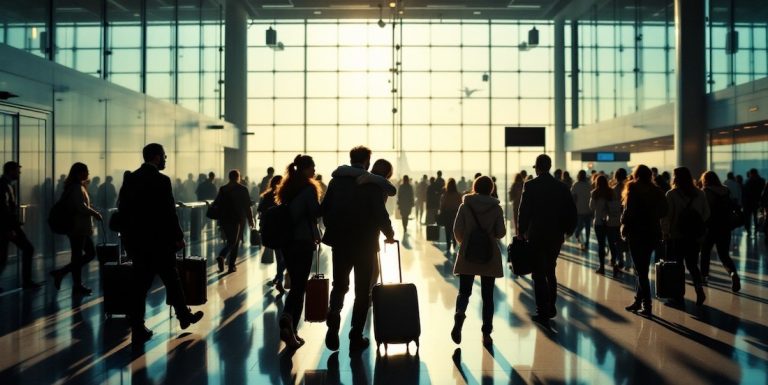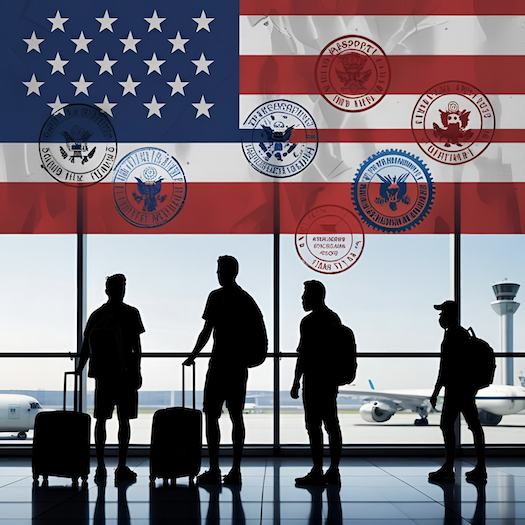
President Trump’s order blocks entry from 12 countries and restricts travel from seven more, citing national security and visa overstay concerns, but critics call it divisive and harmful to U.S. communities.
New York, N.Y. – President Donald Trump’s sweeping new travel ban, set to take effect Monday, has ignited fierce debate and deep anxiety across immigrant communities and diplomatic circles.
The order, which targets citizens from 19 countries—12 with a near-total ban and seven with partial restrictions—marks the administration’s most expansive immigration move since Trump’s return to office.
The administration’s proclamation, signed Wednesday, will bar entry for individuals from Afghanistan, Myanmar, Chad, the Republic of Congo, Equatorial Guinea, Eritrea, Haiti, Iran, Libya, Somalia, Sudan, and Yemen.
Additional restrictions will affect travelers from Burundi, Cuba, Sierra Leone, Togo, Turkmenistan, and Venezuela who are outside the United States and lack a valid visa.
A Broader, More Strategic Ban
Unlike Trump’s first-term “Muslim ban,” which was quickly challenged in court, the new order is designed to withstand judicial scrutiny.

It focuses on the visa application process and includes exceptions for lawful permanent residents, current visa holders, and athletes participating in major international sporting events such as the World Cup or Olympics.
Trump has argued that the affected nations pose “terrorism-related” and “public-safety” dangers, citing “deficient” screening processes and high rates of visa overstays.
In a social media video, Trump linked the policy to a recent terrorist incident in Boulder, Colorado, though the suspect’s country of origin is not included in the ban.

Communities React: Fear, Frustration, and Legal Questions
The announcement has triggered immediate backlash, especially in regions with large immigrant populations.
South Florida, home to significant Haitian, Cuban, and Venezuelan communities, is expected to feel the brunt of the new restrictions.
Miami-Dade Mayor Daniella Levine Cava warned, “I am extremely worried about this choice, which further divides us as Americans and negatively affects hardworking families that are vital to our community.”
She called for comprehensive immigration reform rather than policies that “undermine our communities.”
Elvanise Louis-Juste, a Haitian-American at Newark Airport, echoed these concerns:
“I have family in Haiti, so it’s pretty hard to see and hear,” she said. “I don’t think it’s a good thing. I think it’s very upsetting.”

Economic and Social Impact:
Families Separated, Billions at Stake
The American Immigration Council estimates that the ban could block at least 34,000 immigrant visas and over 125,000 non-immigrant visas annually.
In 2023, more than 4.3 million people from the affected countries lived in the United States, including 2.4 million naturalized citizens.
Many now face the prospect of being unable to reunite with family members abroad or risk being stranded if they travel internationally.
The economic consequences are significant. Households from these countries collectively earned $3.2 billion in income, paid $715.6 million in taxes, and held $2.5 billion in spending power last year.
The ban also impacts international transportation and supply chains, as it applies to crew members and transit visas, potentially disrupting global commerce.
Legal and Human Rights Challenges Loom
The policy is expected to face immediate legal challenges. Human rights organizations have criticized the timing and scope, arguing that the ban disproportionately targets African and predominantly Muslim nations and exploits moments of national tragedy for political gain. Maxman, president of Oxfam, stated, “This is not national security. It is sowing division and vilifying those seeking safety and opportunity in the United States.”
Legal analysts note that Trump’s previous travel bans underwent multiple revisions before the Supreme Court ultimately upheld a version in 2018. The latest order is seen as more carefully crafted, but its broad reach and selective exceptions are likely to be contested in court.
#TrumpTravelBan #ImmigrationPolicy #USImmigration #TravelRestrictions
#FamilySeparation #HumanRights #EconomicImpact
Tags: Trump, travel ban, immigration, United States, visa restrictions, national security,
legal challenges, economic impact, family separation, international relations
Summary: The new travel ban, with its sweeping reach and immediate effects, has reignited the national debate over immigration, security, and American values. As legal battles loom and families brace for uncertainty, the coming weeks will test both the policy’s durability and the nation’s commitment to fairness and inclusion.